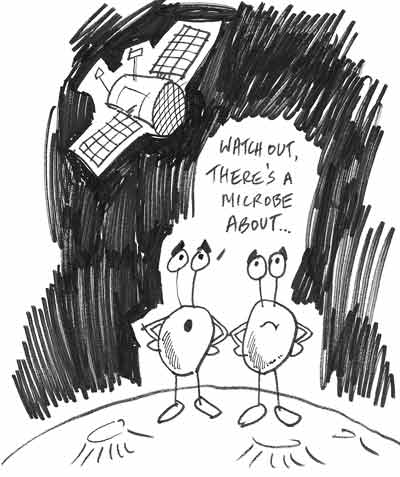|
|
Candida in orbit |
J When space shuttle Atlantis blasted off for its latest mission, the astronauts on board were accompanied by three types of microbe, one of which was the yeast Candida albicans. This will be the first time that Meanwhile, on the ground, scientists at the University of Minnesota, US, have discovered how some strains of C albicans can develop resistance to anti-fungal drugs by modifying one of their own chromosomes. US sources report that candida infections in immune-suppressed patients lead to death in 30-50% of cases and estimate that, in spite of treatment with anti-fungal drugs, 10,000 US patients die each year as a result. For more on candida visit www.candida-society.org.uk
Click here for more research on candida First Published December 2006
|













